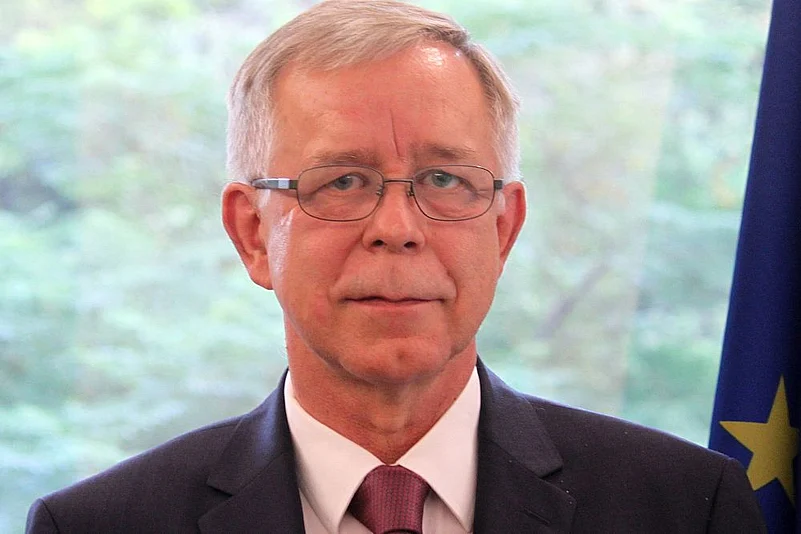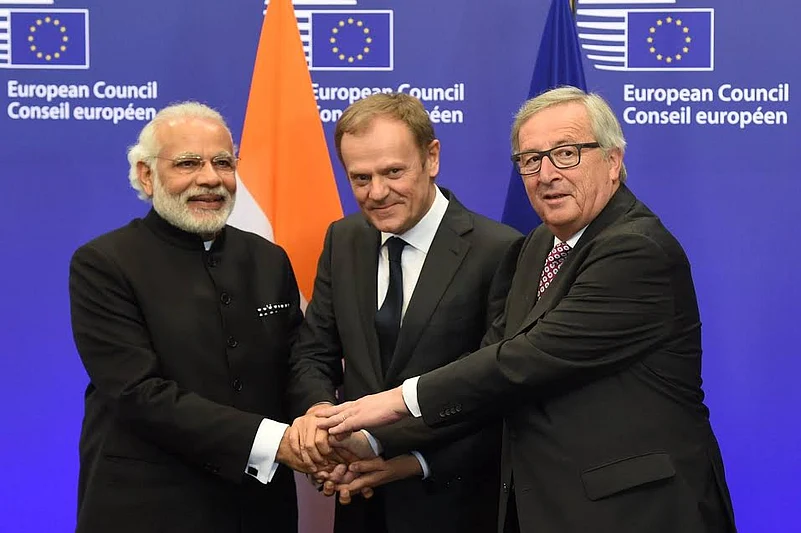On 25th March the European Union will mark 60 years since the signature of the Rome Treaties, the first step towards a united Europe. Since the birth of the European Communities in 1957, the citizens of our Member States have enjoyed six decades of unprecedented peace, prosperity and security. The contrast to the first half of the 20th Century could not be greater. Two catastrophic wars in Europe between 1914 and 1945 left millions dead, and a continent devastated, divided and prostrate. For countries that had long been at war, European integration has been the most successful peace project in our history.
However, we are living in unpredictable times and the 60thanniversary of the Rome Treaties is the opportunity not only to reaffirm our commitment to the values and objectives on which the European project is founded but also to take pragmatic and ambitious steps forward. The world is going through a time of great uncertainty: the global balance of power is shifting and the foundations of a rules-based international order are too often being questioned. The European Union will be an increasingly vital power to preserve and strengthen the global order.
Advertisement

The EU and India are the two biggest democracies in the world and our cooperation is getting stronger. The EU's relations with India were formalised in 1962 and were marked, for the first 3 decades, by development assistance and aid-for-trade.There has been a profound change since the signature of a cooperation agreement in 1994. India and the EU are now strategic partners, meeting at Summit level, and pursuing a far more strategic agenda. The 13th EU-India Summit, held last year in Brussels and attended by Prime minister Modi, discussed foreign policy, security and human rights cooperation, economic cooperation and global issues such as climate change and migration and mobility.
As a fast-growing middle income country and as one of the largest economies in the world, India cooperates with the EU on an equal basis. We focus our joint efforts on addressing areas of shared interest and concern: anti-terrorism, the common development of 5G telecom standards; a wide-ranging water partnership to exchange best practices in water management and governance, subsequently to be applied to the rejuvenation of the Ganga; waste management technologies; and solar, hybrid and wind energy development initiatives, to take but a few examples. The European Investment Bank, with a portfolio exceeding € 1 bn. in India, will this week set up an office in India to finance sustainable projects in the infrastructure sectors. These initiatives will have an impact on programmes such as Swachh Bharat, Make in India, and Digital India as well as on India's programmes for renewable energy and sustainable urbanisation.
Advertisement
The EU is the second-largest global economy. We are the largest global market and the leading foreign investor for most parts of the globe, including India. The EU is India's largest foreign investor and number one trading partner and imports and exports are broadly balanced.
The EU is increasingly active as a global security provider, strengthening its borders, combining national strengths to develop common defence capabilities. A more fragile international environment calls for greater engagement, not for retrenchment. This is why the EU will continue to support the United Nations through peace missions, diplomatic efforts, human rights, tackling hunger and fighting criminality.
We invest more in development cooperation and humanitarian aid (€ 55 billion) than the rest of the world combined, much of it going to education, democracy and human rights in around150 countries in the world. In the period 2014-2020, about 75% of EU aid to countries which are often hard hit by natural disasters or conflict. For us, this is not charity: it is also a smart investment in our own security and prosperity.
Humanitarian crises continue to take a heavy toll internationally, and in 2016 the EU allocated relief assistance of over €1.5 billion for food, shelter, protection and healthcare to 120 million people in over 80 countries. Since the start of the Syrian conflict in 2011 it has been the largest single donor of humanitarian aid for the millions of men, women and children displaced by the conflict.
In a world of re-emerging power politics, instability and alarming brinkmanship, the European Union will have an even more significant role to play. And it will look to its cooperation with India to reduce global and regional tensions and promote innovations, both technological and organisational, to bring about sustainable growth. A dynamic partnership of mutual benefit should be our common endeavour.
Advertisement
H.E. Tomasz Kozlowski, Ambassador of the European Union to India



















